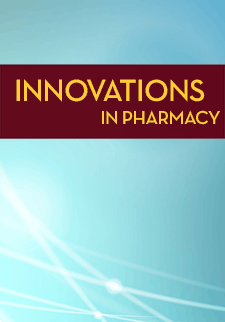The Effect of a Novel Proactive First Day Prescription Counseling Program on Adherence to Select Cardiovascular Medications
Jamie L. McConaha
Kevin Lynch
DOI: https://doi.org/10.24926/iip.v2i4.245
Keywords: medication adherence, patient counseling, community pharmacy
Abstract
Objective: To determine the impact of a proactive first day prescription counseling program on medication adherence to new cardiovascular maintenance medications
Design: Cross-sectional study
Setting: Regional chain community pharmacy in Pittsburgh, Pennsylvania; August 2009 through November 2010
Patients: Data was collected from all patients aged 18-89 presenting with a new or transferred prescription or change in dosage within the study dates at four study locations
Interventions: Patients presenting with a new or transferred prescription or change in dosage were identified to receive pharmacist or student pharmacist counseling. Data from the counseling session was tracked weekly to determine if the program increased adherence to statins, ACEIs and/or ARBs.
Main Outcome Measured: Adherence to statins, ACEIs and/or ARBs was determined by differences in proportion of days covered (PDC) at six months and medication persistence to therapy.
Results: Analysis was conducted using IDNA sm software. Results of the 6,916 prescriptions included in the study revealed that persistence rates for statins was 32.5% (intervention) and 34.2% (control) (p<0.001); ACEI/ARBs persistence was 37.3% (intervention) and 43.2% (control) (p<0.001). PDC was nonsignificant with respect to statins; 43.2% (intervention) and 45.1% (control); and 50.2% (intervention) and 57.1% (control) (p<0.001) for the ACEI/ARBs.
Conclusion: Results from this study showed no improvement in adherence of statins or ACEIs/ARBs with the D1TC program versus control pharmacies, although several important limitations were identified. It is clear that a variety of methods and programs are needed to consistently improve adherence to maintenance medications.
Type: Original Research


